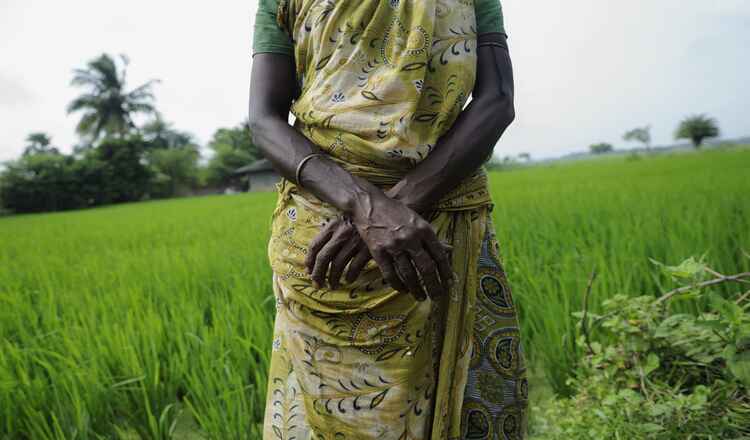
“We were only there to work. It felt like I was in jail.” Laboni, Nepal
You might think that slavery is a thing of the past. But right now, almost 50 million people are trapped in slavery worldwide.
It’s a problem that affects every country on earth – including yours.
In many ways, slavery may look different from the slavery of the Transatlantic slave trade, but modern slavery – as a term – encompasses many forms of slavery, including human trafficking and people being born into slavery.
There are hundreds of definitions of modern slavery. All of these include aspects of control, involuntary actions and exploitation.
At Anti-Slavery International, we define modern slavery as when an individual is exploited by others, for personal or commercial gain. Whether tricked, coerced, or forced, they lose their freedom. This includes but is not limited to human trafficking, forced labour and debt bondage.
Our mission is to stop slavery – to secure freedom for everyone, everywhere, always.
Modern slavery is all around us, often hidden in plain sight. People can become enslaved making our clothes, serving our food, picking our crops, working in factories, or working in houses as cooks, cleaners or nannies. Victims of modern slavery might face violence or threats, be forced into inescapable debt, or have their passport taken away and face being threatened with deportation.
Many people have fallen into this trap because they were trying to escape poverty or insecurity, improve their lives and support their families. Now, they can’t leave.
According to the latest Global Estimates of Modern Slavery (2022) from Walk Free, the International Labour Organization and the International Organization for Migration:
- 49.6 million people live in modern slavery – in forced labour and forced marriage
- Roughly a quarter of all victims of modern slavery are children
- 22 million people are in forced marriages. Two out of five of these people were children
- Of the 27.6 million people trapped in forced labour, 17.3 million are in forced labour exploitation in the private economy, 6.3 million are in commercial sexual exploitation, and nearly 4 million are in forced labour imposed by state authorities
- The Covid-19 pandemic has exacerbated the conditions that lead to modern slavery
- Migrant workers are particularly vulnerable to forced labour.
Source: Global Estimates of Modern Slavery: Forced Labour and Forced Marriage, Geneva, September 2022
Types of slavery today
Modern slavery takes many forms. The most common are:
- Human trafficking. The use of violence, threats or coercion to transport, recruit or harbour people in order to exploit them for purposes such as forced prostitution, labour, criminality, marriage or organ removal
- Forced labour. Any work or services people are forced to do against their will, usually under threat of punishment
- Debt bondage/bonded labour. The world’s most widespread form of slavery. People trapped in poverty borrow money and are forced to work to pay off the debt, losing control over both their employment conditions and the debt
- Descent–based slavery (where people are born into slavery). A very old form of slavery, where people are treated as property, and their “slave” status has been passed down the maternal line.
- Child slavery. When a child is exploited for someone else’s gain. This can include child trafficking, child soldiers, child marriage and child domestic slavery
- Forced and early marriage. When someone is married against their will and cannot leave. Most child marriages can be considered slavery
- Domestic servitude. Domestic work and domestic servitude are not always slavery, and when properly regulated can be an important source of income for many people. However, when someone is working in another person’s home, they may be particularly vulnerable to abuses, exploitation, and slavery, as they might be hidden from sight and lack legal protection.
Why are people in slavery today?
People may end up trapped in slavery because they’re vulnerable to being tricked, trapped and exploited, often as a result of poverty and exclusion and because laws do not properly protect them.
People can be particularly vulnerable to modern slavery when external circumstances push them into taking risky decisions in search of opportunities to provide for their families, or when people find they are simply pushed into jobs in exploitative conditions. Anyone could be pressed into forced labour, but people in vulnerable situations – such as being in debt, or not having access to their passport – are most at risk. Crises like the Covid-19 pandemic and climate change can make people even more vulnerable to exploitation.
Where do we find slavery?
People are being exploited and pushed into slavery all around the world. While it may take different forms, we’re committed to ending slavery for everyone, everywhere.
Slavery is a problem in the UK, where many people experience human trafficking, bonded labour and forced labour. Many products on our local shop shelves might have been made by people in forced labour, but the complex supply chains that businesses have created might make it harder for business to spot exploitation and abuses in their supply chains. In many cases they even hide behind this complexity to evade responsibility. That’s why we are pushing for new laws to protect workers and hold businesses accountable for exploitation occurring in their supply chains.
Slavery may be hidden but it exists and it’s controlling the lives of millions of people.










